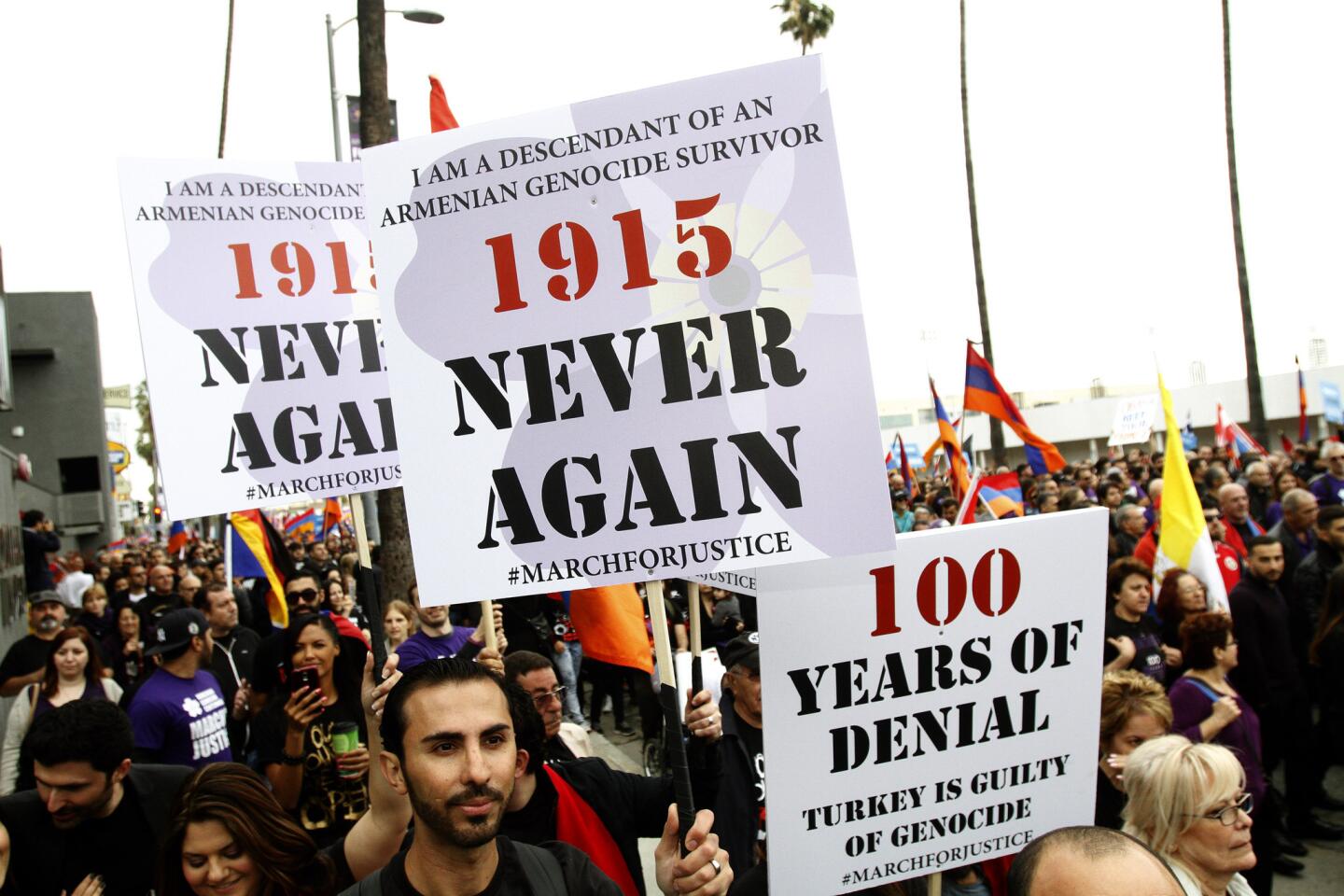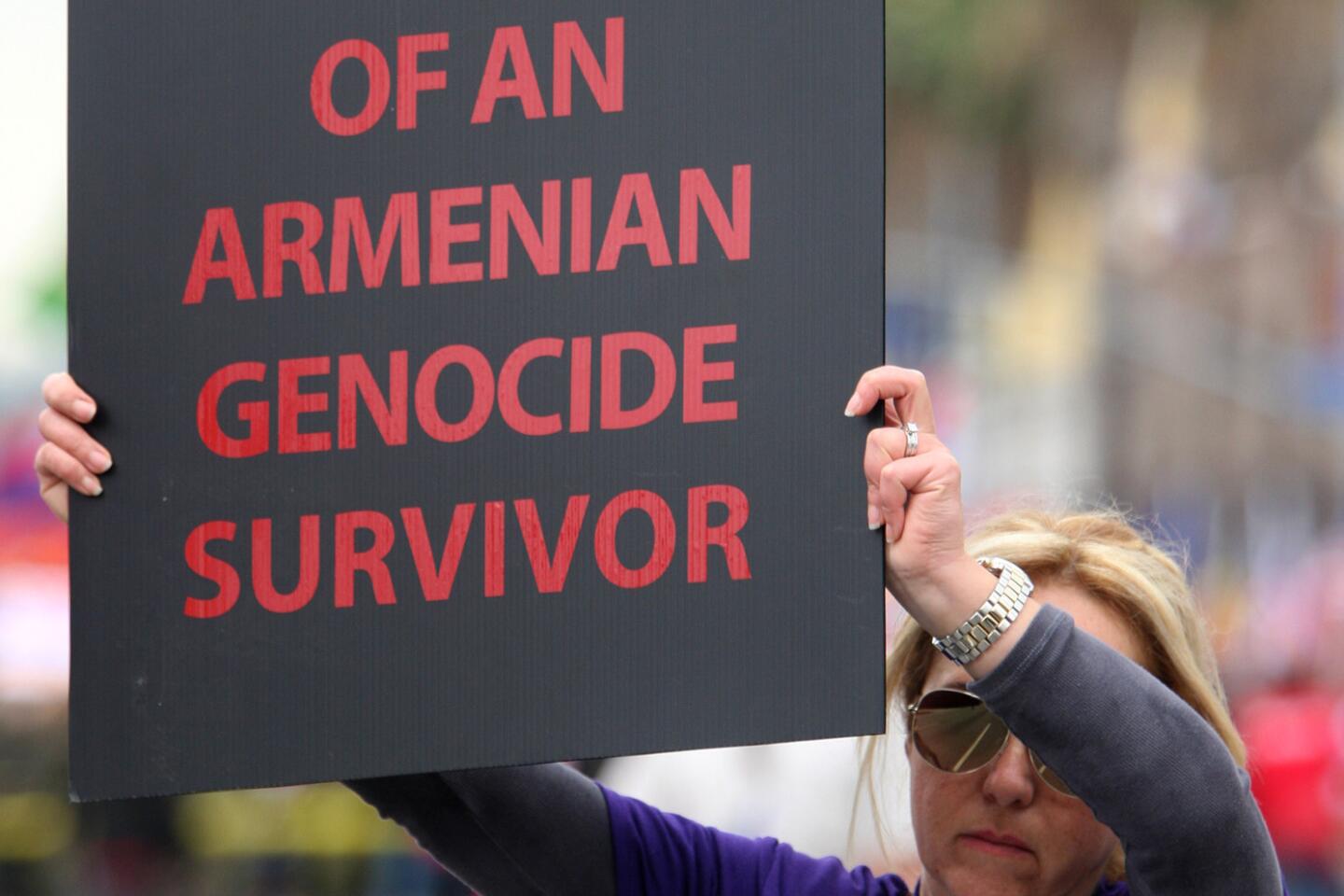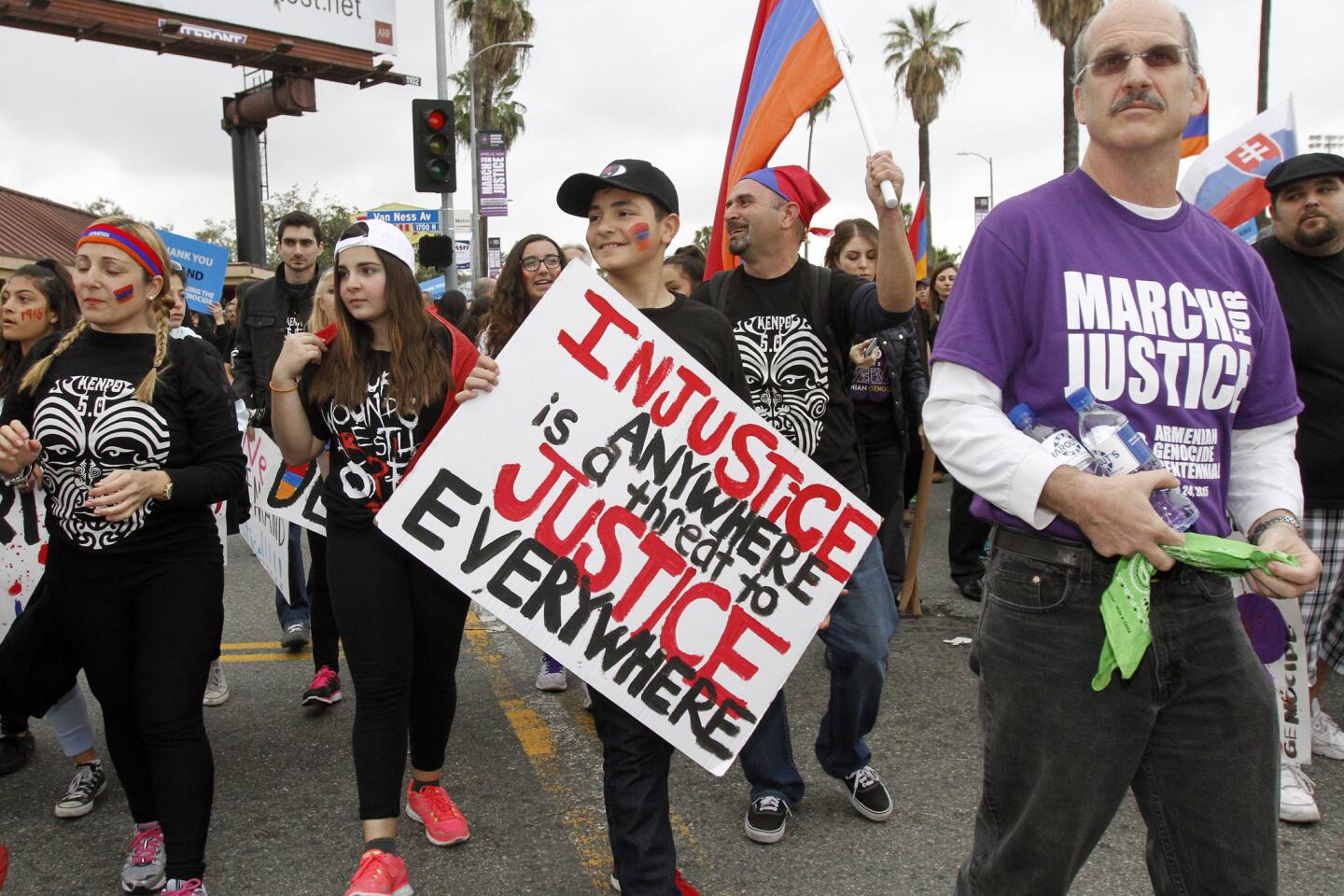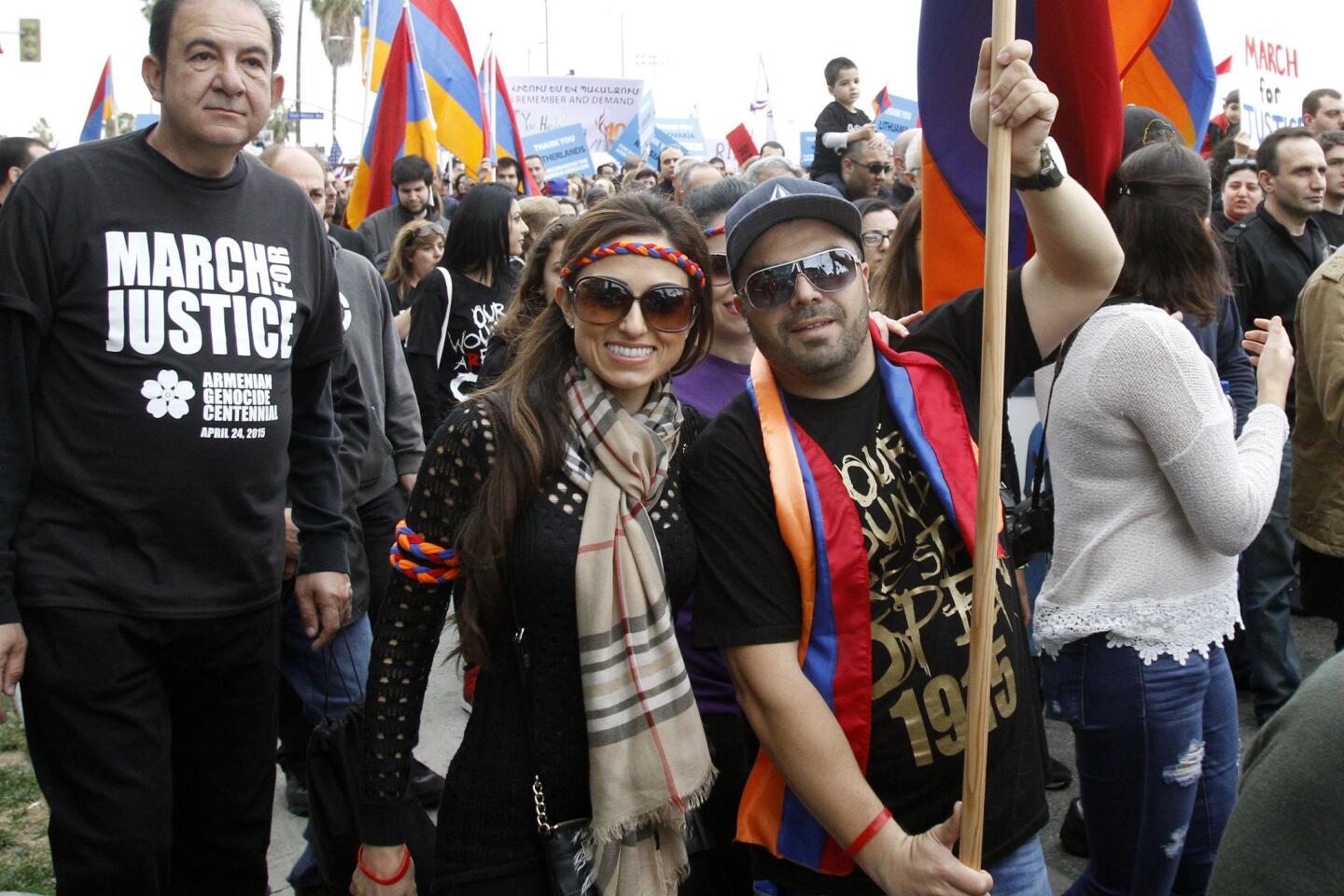More than 130,000 people take part in LA rally commemorating Armenian Genocide centennial
- Share via
A century after a genocide that left 1.5 million Armenians dead, thousands of their descendants took the streets of Los Angeles in remembrance on Friday, while also demanding recognition from the perpetrators.
The Armenian Genocide took place between 1915 and 1923 and was carried out by the Ottoman Empire, but the modern-day Turkish government continues to object to categorizing the event as a genocide.
Most of 130,000 people who marched six miles from Little Armenia in Hollywood to the Turkish embassy on the Westside to protest had relatives who were victims in the mass killings or managed to escape.
PHOTOS: Massive march in remembrance of Armenian Genocide ends at Turkish embassy
One of them was Andrea Marootian of San Diego, whose father, Martin Marootian, was part of a landmark insurance case victory that ended in 2004 with New York Life Co. paying settlements to a few thousand Armenian families whose relatives died in the genocide.
His daughter was carrying a sign that depicted a family portrait with the word “murdered” written in red over family members who perished including Andrea Marootian’s grandfather.
Despite the court victory, there’s still a long way to go in winning recognition of the genocide, she said.
“We have our culture, our language, our religion and everything that surrounds us, but there’s still this open sore wound where families have been murdered and the murderer won’t admit what’s been done,” she said.
At the march, which was sponsored by the Armenian Genocide Centennial Committee Western USA, the trio of the colors that make up the Armenian flag — red, blue and orange — were hoisted by many of the marchers as well as the flags of other countries that eventually became home to displaced survivors.
Amid the many signs aimed at shaming the Turkish government for its continued denial, several placards bore messages of gratitude toward countries such as Sweden, France and the Netherlands for acknowledging the genocide.
Vatican City was also among the countries thanked after Pope Francis recalled Pope St. John Paul II’s statement that the mass killings of Armenians were “the first genocide of the 20th century.”
The United States has been reluctant to call the events a genocide mainly because Turkey is a key ally in the Middle East.
President Obama, most recently, didn’t use the word “genocide” in his annual remarks on the mass killings, referring to them as a “calamity.”
While Marootian’s family has been in the spotlight in the push for recognition, 75-year-old Garry Gertmenian’s close relatives mostly shied away from talking about it.
He made the commute from his Duarte home to participate and painted his thick, white mustache the colors of the Armenian flag.
“For a lot of the families, it was all or nothing,” he said “My family was hurt so bad, they didn’t want to talk about it. Some of the families, they were hurt so bad all they did was talk about it.”
Gertmenian’s grandfather was killed in the genocide, while his father, who was a teenager at the time, survived.
Moving away from his family’s quietness on the matter, Gertmenian said he is being vocal now because he wants Turkey to admit what happened.
“I feel that it’s not just a duty, I just feel that way personally,” Gertmenian said.
The annual march was once again peaceful, and there were no reports of disturbances, according to the Los Angeles Police Department.
While many chants echoed messages shaming Turkey or exclaiming the unity between Armenians, others targeted Obama for failing to fulfill his campaign promise of recognizing the genocide.
Hagop Nalbandian, a Glendale resident, has participated in the annual march many times. Despite the ongoing challenge of winning recognition worldwide, he said he remains optimistic it will happen some day at the federal level in the United States.
“It’s a mixed feeling of pride and strength,” he said.
--
Arin Mikailian, arin.mikailian@latimes.com
Twitter: @ArinMikailian


















